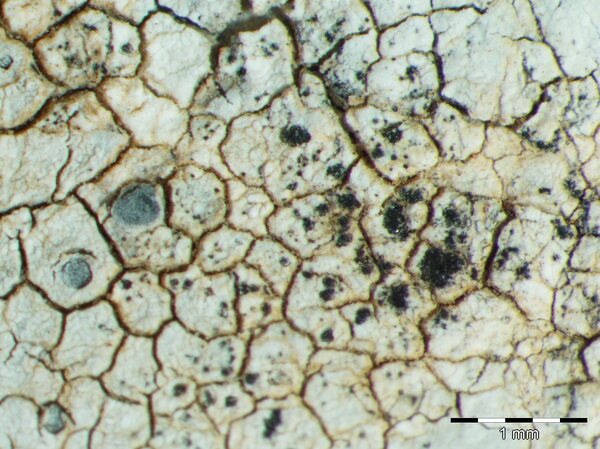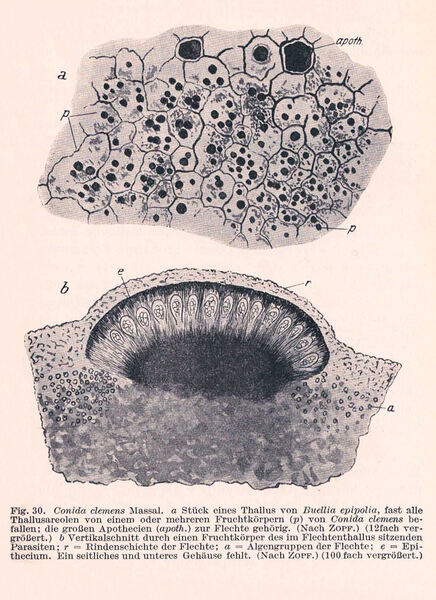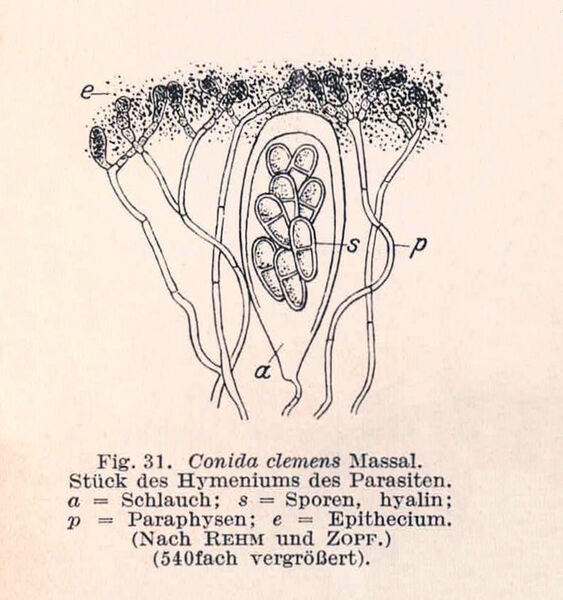Arthonia rubescens (Arnold) Clauzade, Diederich & Cl. Roux
Bull. Soc. Linn. Provence, num. spéc. 1: 28, 1989.. Basionym: Conida rubescens Arnold - in Zopf, Hedwigia, 35, 6: 325, 1896.
Synonyms:
Distribution:
Description: Thallus inapparent, not lichenized, developing inside the thalli of Diplotomma hedinii. Apothecia arthonioid, emarginate, black, flat to slightly convex, single or more often clustered in groups of 1-12, more or less round, 0.1-0.3 mm across, at first immersed in the thallus of the host, then slightly raised. Proper exciple not developed; epithecium brown; hymenium pale brown, I+ dark red; paraphysoids branched and anastomosing, the apical cells brown-capped; hypothecium poorly delimited from the hymenium, colourless. Asci 8-spored, subglobose to ovoid, semi-fissitunicate, with a large apical dome, and a distinct ocular chamber, Arthonia-type. Ascospores 1-septate, not markedly constricted at septum, with unequal cells, hyaline, ovoid to pyriform, 16-21 x 9-11 µm. Photobiont absent. Spot tests: thallus K-, C-, KC-, P-. Chemistry: without lichen substances. Note: described from Austria (Tyrol), to be looked for in Italy.Note: a lichenicolous fungus growing on the thalli of Diplotomma hedinii; described from Austria (Tyrol), to be looked for in Italy.
Growth form: Lichenicolous fungus
Substrata: rocks
Reproductive strategy: mainly sexual
paras Diplotomma hedinii

Predictive model

Harrie Sipman – Source http://www.bgbm.fu-berlin.de/sipman/Zschackia/AegeanLichens/CaloplacaAC.htm - As Caloplaca oasis
Growth form: Lichenicolous fungus
Substrata: rocks
Reproductive strategy: mainly sexual
paras Diplotomma hedinii

Predictive model

 INDEX FUNGORUM
INDEX FUNGORUM
 GBIF
GBIF



